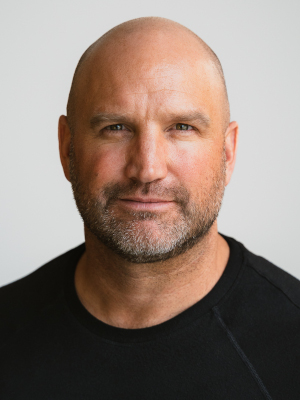With geopolitical uncertainty bringing sovereignty and security to the forefront, Canada has announced plans to ramp up defence spending to levels not seen in decades. A renewed focus on the sector has some high-net-worth investors revisiting their definition of defence—and exploring new opportunities to invest in Canada.
Defence spending in Canada has not topped 2 per cent of GDP since 1990, and it fell as low as 1 per cent of GDP in 2013. But with the federal government reprioritizing military investment, this looks set to change.
Earlier this year, the government announced plans to modernize and simplify defence procurement through a new Defence Investment Agency. It also plans to commit to meet 2 per cent of GDP on defence spending this year and NATO’s 5 per cent Defence Investment Pledge by 2035.
More details were revealed in November’s federal budget, with a proposal to spend $81.8 billion over five years on a cash basis, starting in 2025-26, to rebuild, rearm and reinvest in the Canadian Armed Forces, including investments in defence infrastructure, military capabilities and cyber infrastructure.
Part of this—$6.6 billion over five years—has been earmarked to establish a Defence Industrial Strategy, which aims to improve access to capital, grow critical resource stockpiles, drive research and innovation and bolster the domestic supply chain.
The Canadian defence investment opportunity
For some family offices, defence is already in favour. Along with AI and the “magnificent seven” stocks, defence industries were one of the most popular sectors for family offices inclined to invest in public markets, according to the RBC and Campden Wealth 2025 North America Family Office Report.
I think there will be opportunities that come out of the woodwork because of the step up in [military-adjacent] funding.
Brian Madden, chief investment officer, First Avenue Investment Council Inc.
This statistic, however, may be driven more by U.S. family office interest in the sector, says Spencer Weaver, associate director of research with Campden Wealth in Florida.
“Canadian family offices appear marginally less interested than their United States counterparts in defence industry investments,” he said via email, with Canadians instead favouring AI, value and growth equities.
Currently, the Canadian defence industry offers a narrow investment opportunity compared to the U.S. military-industrial complex, says Brian Madden, chief investment officer with First Avenue Investment Council Inc. in Toronto.
“There are very few companies operating in the space that are Canadian-domiciled, and those that do operate in the space are not really, in any instance, pure plays on defence spending,” he says.

At the same time, says Madden, the federal government’s move to meaningfully step up its commitment to boost military funding, and a push for local procurement where possible, may broaden the investment universe.
Among the public companies already positioned for the defence spend opportunity, Madden says, is MDA Space Ltd., which is working with the Canadian government to put low-earth-orbit satellites into operation for military applications. Bombardier has also discussed the opportunity to grow its line of business that supplies aircraft to NATO allies for reconnaissance and surveillance. Madden’s firm has equities exposure to both companies.
In addition, engineering and construction company WSP Global Inc., which his firm also owns in its portfolio, may be poised to capture a step up in defence spending and bid on government design-build work, says Madden, whether at bases, ports or airstrips.
Other stocks, he says, may also offer more undiluted exposure to the military, such as Kraken Robotics Inc. and CAE.
Madden adds that some small companies with military-adjacent civilian technologies or capabilities will likely also pivot to pursue defence contracts. “I think there will be opportunities that come out of the woodwork because of the step up in funding. If Canada makes good on what they’ve agreed to, it will be epic.”
Startups on the rise
On the defence and security tech side, Glenn Cowan, founder and managing partner of Ottawa-based ONE9, is seeing more opportunities to invest in Canadian startups.
“Canada’s got unbelievable talent, and we have incredible innovation ecosystems,” says Cowan, who spent 19 years in the Canadian Armed Forces, including as an officer with Special Operations Forces unit Joint Task Force 2. “In our sector, traditionally we have lacked a really solid customer base for some of these companies, and so these companies have been forced to find customers internationally.”

The launch of the Defence Investment Agency is “doing a lot of work to really turn the federal government national security apparatus into a more streamlined customer that is favouring Canadian content,” he adds. “It’s a very exciting time to be investing.”
ONE9 has focused on national security, defence and dual-use technology in the venture capital space since 2019, offering domain expertise in the military and intelligence communities. Its venture capital investment business was acquired earlier this year by long-time partner Kensington Capital Partners.
Together, their platform aims to invest in specialist VC funds in the U.S. and other NATO countries and directly in companies—including those in Canada—that have technologies designed for the government sector, or dual-use technologies that can be scaled for commercial customers.
“It’s about access to these really hard-to-access communities and these really difficult-to-access deals, and the venture dollars will pick the winners in this sector very early,” adds Cowan, who expects rapidly scaling defence tech companies to fuel the next wave of IPOs.
A broader shift
Robert Janson, co-CEO and chief investment officer with Westcourt Capital in Toronto, sees the government’s investment in defence and domestic procurement—whether in Arctic defence, shipbuilding, drone surveillance, cybersecurity, AI systems or resource extraction—as a new paradigm that represents broad economic potential for Canada.
On the investment side, however, the opportunity has yet to fully reveal itself, he says.
“Sometimes it will take years before you start to see that make its way into further employment, greater spending and investment by companies,” he says.
What will be most eye-opening about the shift from an investor perspective, Janson says, is defence’s move from its historical place among the “sin stocks”—alongside sectors such as gambling, alcohol and tobacco—to a national security and technology story.
“When you tie it to Canadian sovereignty and our own security, you see the pendulum swing pretty quickly in the other direction,” he says. “The taboo will erode or dissolve quickly, and therein lies the opportunity of the investment set that will play out in front of us.”
Defence’s inclusion among vice investments can also be linked to a lack of understanding about what is included in the sector, says Cowan.

“Most people just think military, guns, bombs and bullets. The reality is, that is a tiny, tiny fraction of the investible opportunities,” he says.
As Rick Nathan, senior managing director at Kensington Capital Partners in Toronto, adds, a majority of his firm’s defence portfolio is software-related, whether in cybersecurity, AI, communication or data analytics. “We may have some aerospace, drones and things like that, but overwhelmingly it is all the kind of tech that is leading the market.”
Ultimately, Nathan says, until this year, most institutional investors in Canada were prohibited from investing in this sector by their policies. Now, he says, many are revisiting this stance and looking at the sector with fresh eyes, with the high-net-worth market particularly receptive to new opportunities.
“People are engaged. A lot of people are still thinking it through, especially the larger institutions, but absolutely—everyone’s talking about it.”
Helen Burnett-Nichols is a Hamilton, Ont.-based business and financial writer. For more than 20 years, she has covered investment, legal, wealth management, entrepreneurship, benefits and pensions, financial planning and personal finance topics for national and industry-focused publications. Prior to embarking on a freelance career, Helen held editorial roles in both Toronto and London, England.
The Canadian Family Offices newsletter comes out on Sundays and Wednesdays. If you are interested in stories about Canadian enterprising families, family offices and the professionals who work with them, but like your content aggregated, you can sign up for our free newsletter here.
Please visit here to see information about our standards of journalistic excellence.




